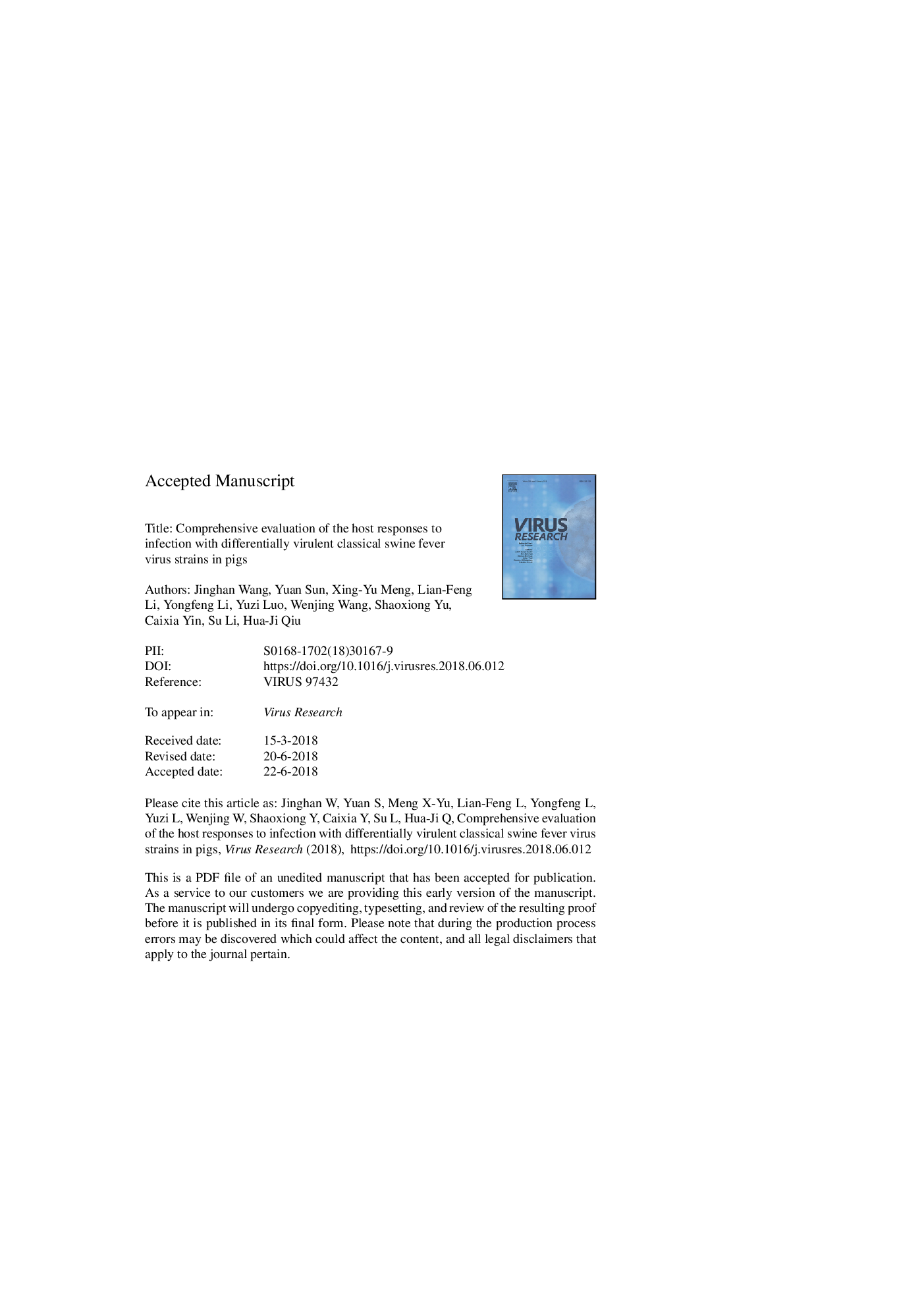| Article ID | Journal | Published Year | Pages | File Type |
|---|---|---|---|---|
| 8751660 | Virus Research | 2018 | 28 Pages |
Abstract
Classical swine fever virus (CSFV) infection causes most variable clinical syndromes from chronic or latent infection to acute death, and it is generally acknowledged that the course of disease is affected by both virus and host factors. To compare host immune responses to differentially virulent CSFV strains in pigs, fifteen 8-week-old specific-pathogen-free pigs were randomly divided into four groups and inoculated with the CSFV Shimen strain (a highly virulent strain), the HLJZZ2014 strain (a moderately virulent strains), C-strain (an avirulent strain), and DMEM (mock control), respectively. Infection with the Shimen or HLJZZ2014 strain resulted in fever, clinical signs and histopathological lesions, which were not observed in the C-strain-inoculated pigs, though low viral genome copies were detected in the peripheral blood and tissue samples. The data showed that the virulence of the strains affected the outcome of duration and intensity of the disease rather than the tissue tropism of the virus. Furthermore, leukopenia, lymphocytopenia, differentiation of T-cells, and the secretion of cytokines associated with inflammation or apoptosis such as interferon alpha (IFN-α), tumor necrosis factor alpha (TNF-α), interleukin 2 (IL-2), IL-4, IL-6, and IL-10 were induced by the virulent CSFV infection, the differences reflected in onset and extent of the regulation. Taken together, our results revealed that the major differences among the three strains resided in the kinetics of host response to the infection: severe and immediate with the highly virulent strain, while progressive and delayed with the moderately virulent one. This comparative study will help to dissect the pathogenesis of CSFV.
Related Topics
Life Sciences
Immunology and Microbiology
Virology
Authors
Jinghan Wang, Yuan Sun, Xing-Yu Meng, Lian-Feng Li, Yongfeng Li, Yuzi Luo, Wenjing Wang, Shaoxiong Yu, Caixia Yin, Su Li, Hua-Ji Qiu,
